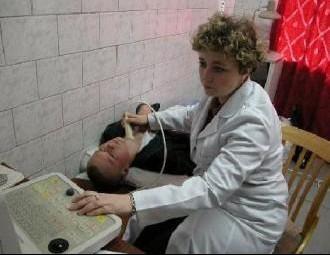European Commission adopts new program which popularizes healthy life-style in Belarus

The program is also aimed at local and regional development.
The European Commission has adopted a new programme for Belarus which will promote healthy lifestyles, as well as local and regional development, notifies EU Neighbourhood Info.
The programme includes two areas for the benefit of the population at large. The first will focus on improving healthcare and wellbeing of Belarusians. It will encourage the modernisation of the healthcare system, adaptation of the main laboratories for testing medical products to international standards, prevention of communicable diseases and the promotion of healthy lifestyles.
The second action will promote regional development and better living conditions of communities in the Grodno and Minsk regions , through capacity building activities (such as providing expertise and training) and support for citizens’ initiatives (such as facilitating partnerships among local authorities and civil society, providing training or funding opportunities for local community projects).
“Providing increased support to the citizens of Belarus is vital for the EU's engagement with Belarusian society. This new assistance will contribute to making a difference for Belarusian people and contribute to improving their quality of life. By focusing on society, we also wish to promote a better understanding of the European Union and its core values.” said Štefan Füle, Commissioner of Enlargement and European Neighbourhood Policy.
Background
This programme is part of the Eastern Partnership initiative, which represents the Eastern dimension of the European Neighbourhood Policy and aims to bring closer to the European Union six Eastern neighbours: Armenia, Azerbaijan, Belarus, Georgia, Moldova and Ukraine.
The Programme 2013 has two components:
International accreditation of testing laboratories for medical products and support to healthcare in Belarus (BELMED): with a total EU contribution of €8 million, the main objective is to contribute to the improvement of healthcare and wellbeing of the Belarusian population. The action focuses on 3 elements:
-
the international accreditation of testing laboratories for medical products;
-
prevention of communicable diseases and promoting healthy lifestyles. It will include a grant scheme for NGOs active in this field;
-
policy advice to support the modernisation of the healthcare system; as a transition measure for possible future actions.
Extension of the programme "Support to regional and local development in Belarus" (RELOAD-2): with €3.5 million, it will extend the regional programme, approved in 2011, to two other regions: Grodno (west) and Minsk (central). The action has 2 components:
-
building capacity of regional authorities to formulate and update regional development strategies. It will include a number of pilot projects in the areas of environment, private sector, and improvement of housing and communal sector;
-
focus on local communities (this will be implemented by United Nations Development Programme, or UNDP)– including a grant scheme for the funding of local community projects.
-
03.01
-
07.10
-
22.09
-
17.08
-
12.08
-
30.09



























